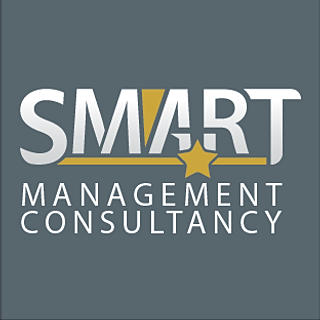Healthcare Policies: Moving from Documents to Culture
- Smart Management Consultancy
- Jun 15, 2025
- 4 min read

In the world of modern healthcare, policies are more than mere documents; they are the foundation of accountability, safety, and operational excellence. Yet many healthcare facilities fall into the trap of treating policies as compliance checkboxes, filed neatly in cabinets or digital folders, far from the frontlines of care delivery. The real power of healthcare policy emerges not when it is written but when it is lived.
This blog speaks directly to healthcare executives and organizational leaders who are committed to transforming culture, elevating patient care, and achieving regulatory excellence. It’s time to go beyond paper. Let’s talk about practice.
Policies Without Practice Are Missed Opportunities
Healthcare policies articulate the standards and expectations of care. They protect patients, guide staff, and demonstrate alignment with national and international regulations. But unless policies are embedded into daily workflows, they fail to achieve their purpose.
The consequences?
Staff confusion
Inconsistent care delivery
Patient safety risks
Failed to get accredited or certified
The opportunity?
Elevate quality
Build trust
Achieve zero-error environments
Inspire a culture of professionalism and excellence
The Leadership Imperative: Moving from Documents to Culture
Leaders must champion a shift from policy as paperwork to policy as a shared belief system. This requires
Visible leadership engagement: Executives and department heads must actively model adherence to key policies and communicate their purpose consistently, not just during inspections, but every day. For example, a medical director who insists on double-checking patient identifiers before every procedure reinforces the importance of the proper patient identification for the sake of patient safety far more than any document ever could.
Policy alignment with organizational values: Policies should reflect and support the facility's mission, vision, and culture of care. A policy on patient complaints should not merely outline steps for documentation; it should express a genuine commitment to listening, empathy, and service recovery.
Establishing accountability: Assigning policy champions within departments, such as an infection control officer overseeing hand hygiene compliance, helps reinforce responsibility at the point of care. Use KPIs to monitor adoption rates and compliance levels, and tie them to departmental performance metrics.
Leading by example: Leaders who follow and reference policies in their decisions set a powerful tone. For example, using the HR policy as a reference when resolving a staff grievance or the clinical escalation policy during rounds shows real-world application. Great leadership doesn’t just enforce policies but embodies them.
Embedding Policies in Daily Practice: A Practical Framework
At Smart Management Consultancy, we support healthcare facilities in transforming policies into actions using a practical and proven five-step framework:
Policy Orientation: All new and existing staff members must understand the relevance of policies to their roles. This means proper onboarding, job-specific policy handbooks, and scenario-based learning.
Training & Simulation: Real-world simulations and practical drills (e.g., risk materialization, medical error incidents, infection control gaps, wrong patient identification, and emergency response) enable staff to experience policies in action.
Visual Reminders in the Workplace: Posters, checklists, quick-reference guides, and digital dashboards reinforce expectations. Keep policies visible, not hidden.
Regular Monitoring and Spot Audits: Short, focused audits (conducted by team leads or quality officers) help track compliance and provide valuable coaching opportunities.
Feedback Loop and Continuous Improvement: Use staff input, audit findings, and patient feedback to regularly revise and improve policies. Involve the people who implement policies in refining them.
Building a Culture Where Policy is Practice
Culture is not built overnight. But it is built deliberately. When healthcare staff understand that policies are for them, not just about them, compliance transforms into ownership.
Here’s what SMART teaches its clients:
A policy must be understood before it can be followed.
Policies must be relevant and realistic, not copied and pasted from templates.
Implementation must be team-based, not top-down.
Leadership must provide recognition for compliance, not just reprimands for errors.
At SMART, we have seen firsthand how culture shifts when a frontline nurse proactively leads a briefing on infection control protocols or when administrative teams take initiative to revise outdated patient communication policies. These are not exceptions; they are the results of systematic leadership investment, staff engagement, and continuous feedback.
Policies should no longer be just institutional mandates; they should be seen as shared commitments to excellence, safety, and respect for every patient and professional.

SMART Management Consultancy: Your Partner in Policy-to-Practice Transformation
At Smart Management Consultancy, we do more than help healthcare facilities write policies. We empower leadership teams to implement them, train staff to live them, and build monitoring tools to ensure sustainability. Whether you're preparing for NHRA Accreditation in Bahrain or striving to improve patient experience and safety culture, SMART is your trusted strategic partner.
We offer:
Policy development tailored to your scope of services
Policy training and orientation plans
Compliance monitoring tools and templates
Staff simulation training and practical workshops
Executive coaching on policy leadership
Contact SMART today to explore how we can help you move from paper to practice and build a healthcare organization where excellence is not just a goal, but a habit.
WhatsApp Now +973 36077750, +973 39042859
📩 Email: info@smartmcbh.com🌐 Website: www.smartmcbh.com















Comments